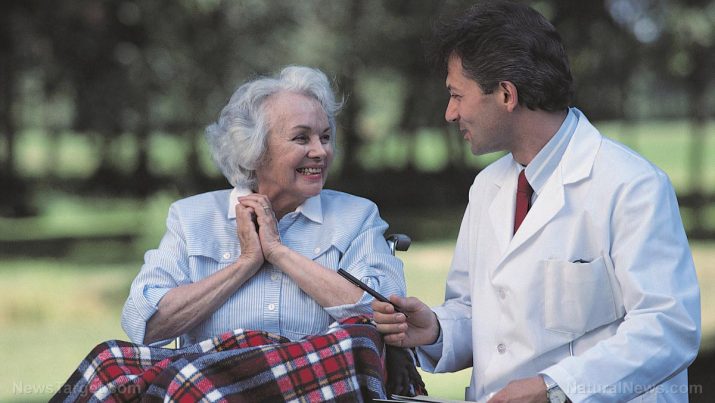
Another reason to go Mediterranean: Research shows the diet helps protect older adults from becoming frail, prolonging health and independence
Thursday, January 18, 2018 by Zoey Sky
http://www.realsciencenews.com/2018-01-18-mediterranean-research-shows-the-diet-helps-protect-older-adults.html

Healthcare experts advocate the Mediterranean diet because of its various health benefits. According to the analysis of several studies, this particular diet can even “reduce the risk of frailty in older individuals.” The findings were published in the Journal of the American Geriatrics Society.
The analysis indicates the Mediterranean diet, which mainly features plant-based foods, like “fruits and vegetables, whole grains, legumes, and nuts,” can help keep people strong and healthy in later parts of their lives.
Frailty in older adults
Older adults often show signs of frailty, and individuals are at high risk as they age. Most of the time, these “frail” older individuals can be negatively affected by symptoms such as low energy, weight loss, and weak muscle strength.
These symptoms can then cause serious health concerns like “falls, fractures, hospitalization, nursing home placement, disability, dementia, and premature death.” Among older adults, frailty is usually linked to a lower quality of life.
It is believed that nutrition can significantly impact the development of frailty. Dr. Kate Walters, along with Dr. Gotaro Kojima, from University College London, and their colleagues, set out to determine if observing a healthy diet can significantly minimize an individual’s risk of frailty.
For this study, the scientists examined data gleaned from published studies that looked into the possible connections between “adherence to a Mediterranean diet and development of frailty in older individuals.” The analysis took into account 5,789 people in four studies from China, France, Italy, and Spain.
Dr. Walters shares that they have uncovered evidence which showed that older adults who observed a Mediterranean diet “had a lower risk of becoming frail.” She continued, “People who followed a Mediterranean diet the most were overall less than half as likely to become frail over a nearly four-year period compared with those who followed it the least.” (Related: Superfoods to combat arthritis: Ginger, berries, fish and other anti-inflammatory foods.)
The researchers wrote that based on their findings, the diet could also help older individuals preserve their “muscle strength, activity, weight, and energy levels.” Dr. Kojima comments that their analysis backs the growing body of evidence which confirms the possible health benefits of a Mediterranean diet. He added that for their study, it was confirmed that the diet could help older adults stay healthy as they grow older.
While older individuals who followed the Mediterranean diet had a lower chance of becoming frail, it remains to be seen if the people who observed the diet had “other characteristics” that may have contributed to this.
Dr. Walters shared, “While the studies we included adjusted for many of the major factors that could be associated — for example, their age, gender, social class, smoking, alcohol, how much they exercised, and how many health conditions they had — there may be other factors that were not measured and we could not account for.” She concludes that she and the rest of her team need to look into larger studies to determine if “increasing how much you follow a Mediterranean diet will reduce your risk of becoming frail.”
Tips to boost bone strength
As we age, our bones will undoubtedly weaken. However, the tips below can help adults aged 65 and above keep their bones strong:
- Stay active – Activity levels often drop as we age, but inactivity can weaken our bones and muscles. Try to exercise for at least 150 minutes weekly. Even 10 to 20 minutes of moderate-intensity exercise per day will do.
- Try to improve your muscle strength – Activities like dancing, carrying groceries, and using the stairs at least twice a week can make your muscles stronger.
- Practice yoga or tai chi – These activities can improve both your balance and coordination, which can reduce the risk of falling.
- Don’t sit still for too long – Sitting for 20 to 30 minutes can reduce muscle and bone strength, make joints stiffer, and increase the risk of falls.
You can read more articles about diets, fresh food, and tips on how to eat healthy at Fresh.news.
Sources include:
Tagged Under: Tags: aging, Diets, elderly, frailty, fruits and vegetables, goodfood, goodhealth, goodmedicine, goodscience, healing foods, low energy, Mediterranean, muscle strength, older adults, plant-based foods, prevention, quality of life, weight loss





